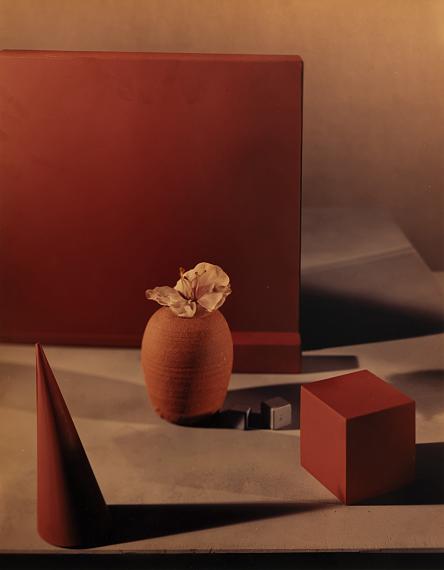
Untitled, 1987
Vintage chromogenic color print
16 x 20 inch / 40,6 x 50,8 cm
© Jan Groover / Galerie Miranda
Early Color
Jo Ann Callis » Jan Groover »
Exhibition: 1 Sep – 13 Nov 2022
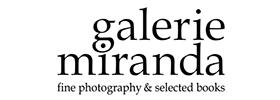
Galerie Miranda
21 rue du Château d’Eau
75010 Paris
+33(0)1-40 38 36 53
enquiries@galeriemiranda.com
www.galeriemiranda.com
Tue-Sat 12-19
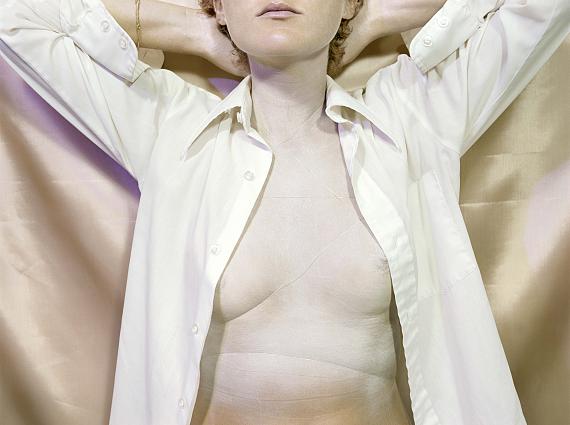
Untitled, from Early Color portfolio, c. 1976
Archival Pigment print 16 x 20 inch / 40,6 x 50,8 cm
© Jo Ann Callis / Galerie Miranda
JO ANN CALLIS - JAN GROOVER
Early color
Exhibition: 1 September - 13 November 2022
To open its autumn 2022 program, Galerie Miranda announces a two-person exhibition by celebrated
American artists Jo Ann Callis (b. 1940) and Jan Groover (b.1943-d.2012), both at the heart of the 1970s
American 'new color' school of photography. The Paris exhibition will feature selected vintage and
contemporary color prints from the landmark series Early Color (1976) by Callis and Kitchen Still Lifes (1979) by Groover.
Working at the peak of the American women's liberation movement, neither artist specifically declared
themselves to be feminist artists yet both were producing works within and about their home environment,
in the vein of militant feminist artists such as Martha Rosler (Semiotics of the Kitchen, 1975) and Judy Chicago (The Dinner Party, 1974-9). In Los Angeles in the 1970s, Jo Ann Callis was juggling two young children, numerous home moves, night school and a pending divorce. Despite these obstacles, she
worked constantly to produce her seminal series Early Color. Influenced notably by Paul Outerbridge but also Hans Bellmer and Pierre Molinier, her cinematographic scenes capture the tensions and anxiety of a
claustrophobic domestic environment where freedom, pleasure and curiosity are bridled. Hitchcockian by
their exquisite composition, Callis created all the decors for the series that she photographed for the most
part in her converted Los Angeles garage, with friends as models and the domestic objects at hand as
props - string, tape, sheets, lamps, sand, honey and her household chairs, tables and plants.
Similarly, for her celebrated Kitchen Still Lifes series, Jan Groover created poetry out of a kitchen sink piled up with fork tines, butter knife blades, scalloped cake tins and indoor plants. In 1979 an image from this series graced the cover of ArtForum magazine: according to critic Andy Grundberg, it announced that "photography had arrived in the artworld - complete with a marketplace to support it."
For until then, color photography was still largely considered a commercial form, particularly suited to
advertising and fashion.
However by the 1970s, and with the commercialization of color photographic film, interest in and debate
around the role of color photography in the art world was becoming harder to ignore. The major
historical marker is generally considered to be the MoMA exhibition in 1976, of dye transfer color
photographs by William Eggleston (b. 1939), curated by John Szarkowski. Eggleston's diaristic, 'snapshot'
style was notoriously reviewed in the NY Times as "the most hated show of the year" yet it heralded
institutional acceptance of color photography as both a process and a language.
At that time of Eggleston's 1976 exhibition, both Callis and Groover were also producing intimist color
photography. Trained in fine art, both artists had already explored a range of forms and languages: Jan
Groover had worked as an abstract painter until her 30s; Callis also painted and introduced other elements
into her compositions, such as screen printing, clay sculpture and textiles; they each explored black &
white photography and used Polaroids throughout their careers. Whilst taking different formal paths, Callis'
and Groover's works share several features: both cite for example Italian painter Giorgio Morandi (1890-
1964) and the calm hues of his 'flat' still lives, as a central influence; they both prepared their 'fabricated' compositions in minute detail before taking the final photograph and, in his preface to the 1992 Jan Groover monograph, John Szarkowski writes that her training as a painter "disposed her to think of a
picture as something that was made, not discovered." Similarly, Judith Keller, Senior Photography Curator
at the J. Paul Getty Museum, quotes Callis: "The photograph is highly structured, so you don't think it is a
real home or a real room, but a room made to evoke something. It's a room in your mind." (preface to the
2009 publication Jo Ann Callis: Woman Twirling).
In NYC, as Adjunct Faculty Professor at SUNY, Purchase (1979-1991), Jan Groover taught and influenced
up-and-coming artists such as Gregory Crewdson and Philip-Lorca diCorcia; in LA, teaching at CalArts
(1976-present), Jo Ann Callis was a key figure of the color movement made up of mentors, peers and
students. A 1989 MoMA show entitled California Photography: Remaking Make-Believe, curated by
Susan Kismaric, featured works by Callis alongside those by her former teacher and mentor Robert
Heinecken, colleagues John Baldessari and John Divola, as well as Larry Sultan. Callis and Groover's
works also featured in the vast and seminal MoMA exhibition Pleasures and terrors of domestic comfort, organized in 1991 by Peter Galassi and including works by Tina Barney, Judith Black, Philip-Lorca diCorcia, Nan Goldin, Nicholas Nixon, Sally Mann, Cindy Sherman, Laurie Simmons, Joel Sternfeld, Carrie Mae Weems.
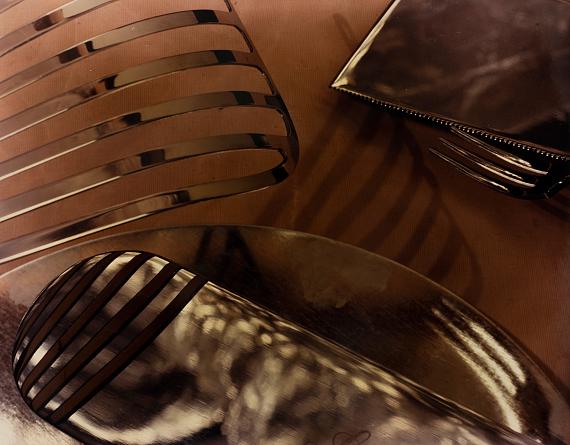
Untitled, 1979 (from Kitchen Still Lifes series)
Vintage chromogenic color print
16 x 20 inch / 40,6 x 50,8 cm
© Jan Groover / Galerie Miranda
Jo Ann Callis (b. 1940, Cincinnati, Ohio, USA) is a photographer based in Los Angeles. After graduating from UCLA she began teaching at CalArts in 1976 and is still a faculty member of the School of Art's Program in Photography and Media. The subject of over 40 personal exhibitions, her work has been acquired by major private and public collections and exhibited internationally including at the Museum of Modern Art, New York; Los Angeles County Museum of Art; Hammer Museum; the Museum of Contemporary Art, Los Angeles; and the San Francisco Museum of Modern Art. In 2009, the J. Paul Getty Museum presented a retrospective of her work in Los Angeles titled Woman Twirling. Callis has received three NEA Fellowships and a Guggenheim Fellowship.
Galerie Miranda will be presenting limited edition archival pigment prints made under the artist's
supervision, of Jo Ann Callis Early Color (1976) portfolio. Works by Jo Ann Callis are presented by Galerie Miranda in friendly collaboration with ROSEGALLERY, Santa Monica
Jan Groover (b. 1943, Plainfield, New Jersey, USA - d. 2012, Montpon-Ménésterol, France) trained in painting and drawing at the Pratt Institute in New York and at Ohio State University,
before turning to photography in the late 1960s. Influenced by both classical and contemporary artists,
she was particularly interested in still life compositions. Groover successfully applied for an NEA Grant in
1978 which gave her the funds to purchase a large-scale camera. In 1979, she received a John Simon
Guggenheim Foundation Fellowship. Jan Groover's work has been the subject of over 50 personal
exhibitions, including a 1987 exhibition at the Museum of Modern Art in New York and a 2017 exhibition
at the Musée de l'Elysée in Lausanne, Switzerland. Her work has been acquired by major private and
public collectionsMoMA, Whitney, SFMoMA, LACMA, Metropolitan Museum of Art, JP Getty Museum,
Amon Carter Museum of American Art, Art Institute of Chicago, Museum of Fine Arts, Houston,
Smithsonian Institute, Walker Art Centre, Centre Pompidou, Musée de l'Elysée. In 1991, Groover moved
to France with her husband, painter Bruce Boice, where she continued to experiment with various printing
techniques, particularly palladium. She died in 2012 in Montpon-Ménestérol, France.
Galerie Miranda will be presenting selected rare vintage chromogenic prints from Jan Groover's Kitchen
Still Lifes (1978-1979) and two vintage chromogenic prints from her Untitled (1987) still life series. Works by Jan Groover are presented by Galerie Miranda in friendly collaboration with Janet Borden Gallery, Brooklyn, with thanks to the Jan Groover Estate.
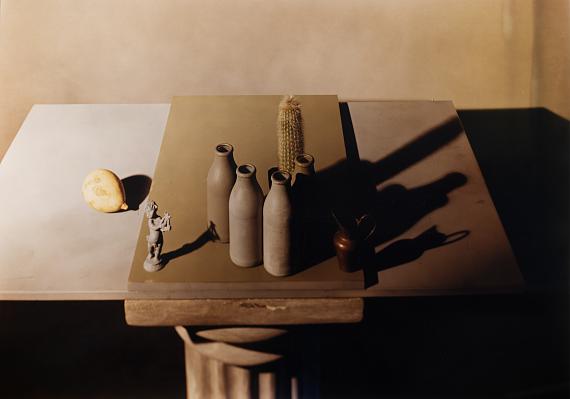
Untitled, 1987
Vintage chromogenic color print
20 x 24 inch / 50,8 x 61 cm
© Jan Groover / Galerie Miranda
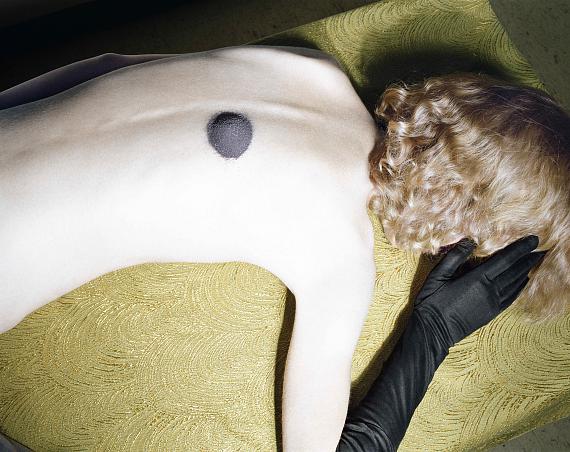
Untitled, from Early Color portfolio, c. 1976
Archival Pigment prints
24 x 30 inch / 50,8 x 61 cm
© Jo Ann Callis / Galerie Miranda
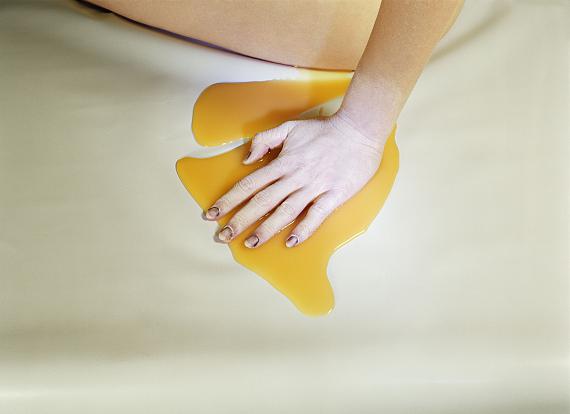
Untitled, from Early Color portfolio, c. 1976
Archival Pigment prints
16 x 20 inch / 40,6 x 50,8 cm
© Jo Ann Callis / Galerie Miranda